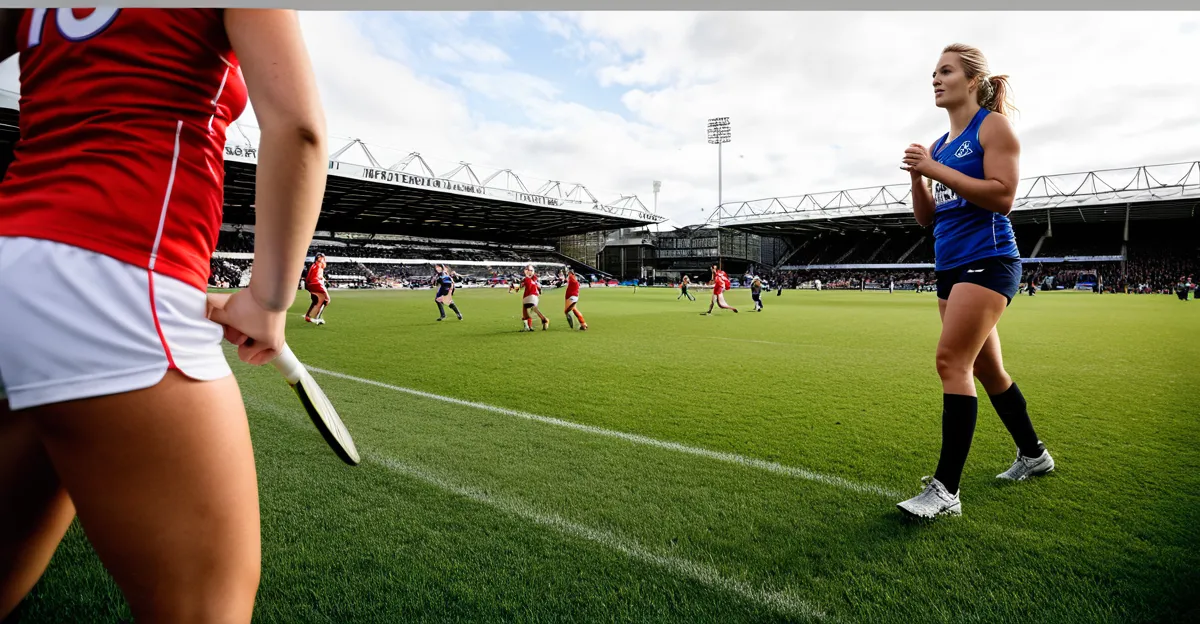Impact of Rising Women’s Participation in UK Sports
Exploring societal shifts alongside athletic achievements
The recent surge in women’s participation in UK sports is reshaping both the athletic landscape and broader societal change. Statistics reveal a significant increase, with female engagement rising by over 20% in various major sports over the past five years. This growth is not merely numerical; it reflects deeper shifts in public perception. Where women athletes were once viewed through a limited lens, they now command respect comparable to their male counterparts.
This might interest you : What Are the Key Strategies for Success in the Premier League?
This transformation influences cultural attitudes profoundly. Media coverage has become more balanced, offering women athletes prominent platforms. Schools and community programs are actively encouraging girls’ involvement, further embedding sports into female youth culture. These developments collectively challenge outdated stereotypes, fostering an environment in which women’s sports achievements are celebrated as vital to the UK’s sporting identity.
Moreover, the UK sports impact extends beyond competition. It promotes inclusivity and empowers women to pursue leadership roles within sports organizations. Thus, rising participation triggers positive societal feedback loops, enhancing equality and inspiring future generations. This momentum showcases how sports serve not only as a field of play but also as a catalyst for widespread cultural progress.
Have you seen this : Who Are the Rising Stars to Watch in UK Sports?
Key Developments and Progress in Women’s Sports
Recent years have seen significant progress in women’s sports, characterized by a notable rise in female leadership roles within UK sports organisations. This growth enhances decision-making diversity and drives policies that promote gender equity across various disciplines. With more women taking on senior positions, there’s a clearer pathway towards inclusive leadership in the sporting landscape.
Media representation has also improved, with increased visibility and coverage of women’s sports events. This shift plays a crucial role in reshaping public perception, inspiring participation, and attracting sponsorship. High-profile broadcasts and dedicated programming ensure that female athletes gain recognition comparable to their male counterparts.
Legislatively, new organisational changes support the advancement of women in sports. These include policies enforcing equal funding, safeguarding measures, and frameworks encouraging grassroots participation for girls and young women. Such reforms complement UK sports leadership efforts, creating a more supportive environment for female athletes.
Together, these developments mark substantial progress in women’s sports—bolstering leadership, enhancing media presence, and reinforcing gender equity through systemic change.
Overcoming Barriers for Women in UK Sports
Understanding the barriers for women in UK sports is essential to promoting gender equity in sports. Historically, women faced limited access to facilities, less media coverage, and fewer role models, which contributed to lower sports participation rates. Such challenges persist, including societal expectations and unequal funding.
To address these issues, targeted strategies and initiatives are vital. Programs encouraging grassroots involvement help increase confidence and skill from an early age. Schools are adopting inclusive policies ensuring girls receive equal opportunities. Additionally, campaigns promoting female athletes raise public awareness, inspiring participation and challenging stereotypes.
Clubs and organizations are also adapting by offering women-only sessions, flexible scheduling, and mentorship schemes that respond directly to women’s needs. These measures aim to dismantle existing participation challenges, fostering an environment where women feel welcomed and supported.
Collectively, these efforts move the needle on gender equity in sports, creating a more level playing field and encouraging broader female engagement across all levels of UK sports. Such progress underscores the importance of ongoing commitment to overcoming the unique barriers women face.
Case Studies: Notable Female Athletes and Teams
Discovering the stories behind notable female athletes in the UK reveals inspiring journeys of dedication and achievement. For example, British cyclist Dame Laura Kenny has transformed women’s sports success stories through her record-breaking Olympic medals, setting new standards for future generations. Similarly, boxer Nicola Adams, the first woman to win an Olympic boxing gold for Britain, highlights how female athletes in the UK continue to break barriers.
UK women’s teams also shine on global stages. The England women’s football team, famously reaching the UEFA Women’s Euro 2022 final, exemplifies the rapid growth and recognition of women’s team sports. Their success story underscores how collective effort and investment have elevated women’s sports success stories nationwide.
These profiles demonstrate how notable female athletes UK contribute significantly to reshaping perceptions, inspiring participation across all ages and backgrounds. The intersection of personal perseverance and increasing institutional support is vital. Recognising these achievements encourages more young women to engage in sports, fostering broader societal impact while celebrating excellence in UK women’s teams.
Societal and Community Impact of Women in Sports
Exploring the ripple effects beyond the field
Women’s sports have a profound community impact by inspiring increased youth participation. When girls see female athletes succeed, their motivation to engage in sports grows. This fosters a sense of belonging and teamwork among young people, strengthening community bonds.
Beyond participation, women’s sports drive social change through sports by challenging traditional gender roles. They open doors for women and girls to access new opportunities, enhancing confidence and self-esteem. Communities see tangible benefits, as empowered female athletes often encourage healthier lifestyles and leadership aspirations in others.
The women’s sports influence extends to health shifts across communities. Regular physical activity, sparked by sport involvement, improves overall well-being and resilience. Socially, increased visibility of women athletes promotes inclusivity and equity, making sports a platform for broader societal progress.
In essence, women’s sports do more than entertain—they catalyse positive change that resonates through families and neighborhoods alike. This growing influence nurtures healthier, more engaged, and equitable communities, highlighting the transformative power of women in sport.
Expert Insights and Data Visualisation
Delving into expert opinions reveals critical perspectives on the growth of women’s sports in the UK. Researchers emphasize that the surge in women’s sports data highlights not only increased participation but also evolving public interest and media coverage. Advocates argue that comprehensive analysis of sports statistics UK exposes gaps in funding and visibility, urging targeted strategies to promote equity.
Visualising these trends, summary charts detail participation rates over the past decade, illustrating a steady increase across multiple disciplines. Infographics map out the rise in attendance at women’s events, correlating it with enhanced grassroots programmes and school-level engagement. These data visualisations underscore how consistent support mechanisms translate into tangible growth.
Additionally, expert commentary sheds light on nuanced challenges, such as disparities in sponsorship and professional opportunities. By integrating women’s sports data with expert insights, policymakers gain a clearer understanding of where interventions are most effective. Ultimately, melding robust sports statistics UK with informed perspectives enhances strategic planning for expanding women’s sports participation and recognition.

